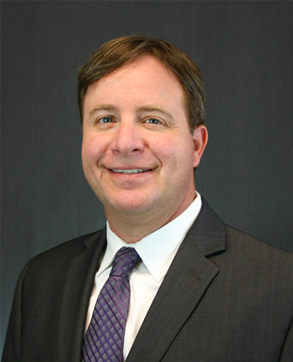Healthcare Recalls
Unlike pharmaceutical medications, medical devices do not work through chemical action within the body to achieve their goals. Medical devices may be as complicated as an artificial heart or as simple as a tongue depressor.
The FDA tracks and reports problems and adverse events associated with medical devices. Manufacturers, importers, and device user facitilities (such as hospitals and nursing homes) are required to report problems to the FDA, but consumers, patients, caregivers, and health care professionals are also encouraged to report adverse events. The aim is to ensure patients’ safety through the proper use of the device, and advanced warning when there is a problem.
- Hernia Mesh Injuries
- An increasing number of hernia mesh complications including pain, infection and bowel obstruction have resulted in the recall of several name brand hernia mesh products. Read More.
- CPAP and BIPAP INJURIES
- CPAP and BIPAP machines have been used to treat sleep apnea for decades. Recent recalls of these machines from the FDA put millions of Americans without proper treatment for this potentially life-threatening condition. Read More.
- Exactech Connexion Hip Liner
- Exactech recalled its Connexion GXL acetabular polyethylene liner after reports showed premature liner wear with acetabular and/or femoral osteolysis (bone loss). Those affected by the recall may be able to recover damages including pain and suffering, lost wages, and other related medical expenses. Read More.
- Also see: Harmful Drugs
- Whether a drug is faulty, dangerous, or contaminated, pharmaceutical drugs can cause serious injuries and death.
Medical device recalls are typically done voluntarily; however, there are instances where the FDA will issue the recall if the device manufacturer/importer fails to do so.
The FDA will arrange these recalls using Classifications I, II, and III.
- Class I – Most serious recall type. Product has high risk of causing injury or death.
- Class II – Product may cause temporary/reversible injury and is less likely to result in permanent damage or death
- Class III – Product may be harmful but not cause serious injury.
Each year the FDA provides a list of the most current medical device recalls on their website. These lists provide detailed summaries of the device in question, outlining the reasons for the recall, who may be affected, and what steps one should take if they are effected by the recall.
List of Issued Recalls for Medical Devices (5 years)
The worldwide medical device market is a more than 200 billion dollar a year industry. While the US Food and Drug Administration (FDA) reviews safety notices, conducts postmarket surveillance, and issues recalls for medical devices used in the US, manufacturers have pushed the limits of FDA approval processes in order to capture their part of the lucrative medical device market. Many devices have made their way to market without the rigorous testing or clinical trial process most consumers would have expected.
From 1938 until 1976, US law focused on the safety and effectiveness of drugs, not medical devices. In 1976, when the FDA was finally given the authority to regulate medical devices, two approval pathways were included in the law. A stringent premarket approval process (PMA) was aimed at more complicated medical devices that “support or sustain human life… or which present a potential, unreasonable risk of illness or injury.” Thousands of devices requiring less stringent scientific review—such as surgical gloves or thermometers—could use a faster, cheaper, and easier approval pathway known as a 510(k) process.
The 510(k) approval pathway initially required that medical devices be “substantially equivalent” to existing medical devices in material, purpose, and mechanism of action to a device already on the market. After an initial wave of “easy”1 reviews for the FDA, medical devices clamoring for 510(k) approval became increasingly complicated and variable. The 510(k) approval process needed to altered, developing more rigorous performance standards for these new medical devices or manufactuers needed to utilize the more stringent PMA process.
However, neither of these things happened:
In an era of aggressive deregulation, the Medical Device User Fee and Modernization Act of 2002 (MDUFMA) was passed by Congress, signed by President Bush, and interpreted by the FDA to shift the regulatory standard to “the least burdensome approach in all areas of medical device regulation.” Subsequently, the definition of substantially equivalent was modified to include products made from different materials and using a different mechanism of action if they were determined to have a similar safety profile. Since clinical trials are not required for 510(k) clearance, approval of devices would be based on biomaterials testing or other standards. Furthermore, predicate devices no longer were limited to products already on the market prior to May 1976 but could include devices cleared through the 510(k) or PMA process. In recent years, the FDA has used the 510(k) provision as the dominant mechanism for new device clearance, reviewing only 1% of medical devices by its more rigorous PMA process. 1[emphasis added]
If you have been injured as a result of a medical device, contact us for a free, no obligation consultation to see if we can help you receive compensation for your injury, loss, or that of your loved one. Don’t let time limit your rights! Contact us today.


